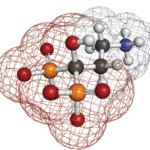Unfortunately, unlike patients with ischemic heart disease, patients with RA and heart failure tend to be managed less aggressively than patients with heart failure who do not have RA.
Implications for Clinical Care
The increased risk for heart disease has implications for how rheumatologists treat their patients with RA. It is clear from the literature that the underlying inflammatory response is driving the cardiovascular risk. That said, it can be difficult to make solid conclusions about the relationship between RA and heart disease, because many of the drugs used to treat RA can have a direct negative effect on the cardiovascular system. Example: disease-modifying anti-rheumatic drugs (DMARDs), biologics, corticosteroids and non-steroidal anti-inflammatory drugs (NSAIDs) can have deleterious cardiovascular effects, but the suppression of inflammation via these agents should have beneficial cardiovascular effects.
Dr. Gabriel explained, “The only way to sort it out is with data and studies.” She described some of the studies that have been performed on the topic (see sidebar, right).
In the case of glucocorticoids, the potential benefits include an increase in high-density lipoproteins (HDL). “We know that RA is associated with low HDL,” elaborated Dr. Gabriel. In addition to ameliorating this pattern, glucocorticoids may also lower levels of lipoprotein (a) and homocysteine.
On the other hand, glucocorticoids can also contribute to cardiovascular risk and studies have actually shown that glucocorticoid use in patients with RA is associated with a dose-dependent increase in mortality. That said, Dr. Gabriel said there may be dose thresholds below which mortality risk does not increase, and these low doses are the ones most frequently used by rheumatologists.
Another example of the balance between inflammation and direct cardiovascular risk is methotrexate. Methotrexate may contribute to cardiovascular risk by reducing folate stores, which can, in turn, lead to increased homocysteine, which is prothrombotic. This effect has been described in the literature, but it is unclear if it is important for patients with RA. This is especially the case because, to date, all studies have been observational, and it has been difficult to tease out the confounders.
Dr. Gabriel concluded her presentation by stating the best way to manage cardiovascular disease in patients with RA is via an interdisciplinary cardio–rheum clinic, such as the one at the Mayo Clinic in Rochester, Minn.
Preventive cardiologists partner with rheumatologists to provide individualized cardiovascular risk assessment and risk reduction. The clinic uses a cardiovascular risk profile tool that incorporates blood work (e.g., fasting lipid screen, lipoprotein [a] and high-sensitivity C-reactive protein). Patients also receive an electrocardiogram (ECG), arterial health screening and ECG with strain imaging. The results of these tests determine the need for further testing and/or pharmacotherapy for identified risk factors or treatment of subclinical atherosclerosis.

